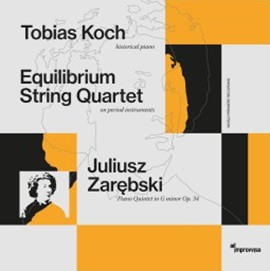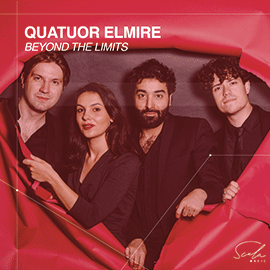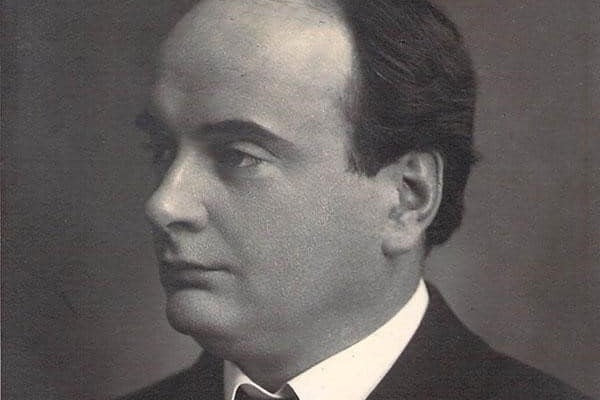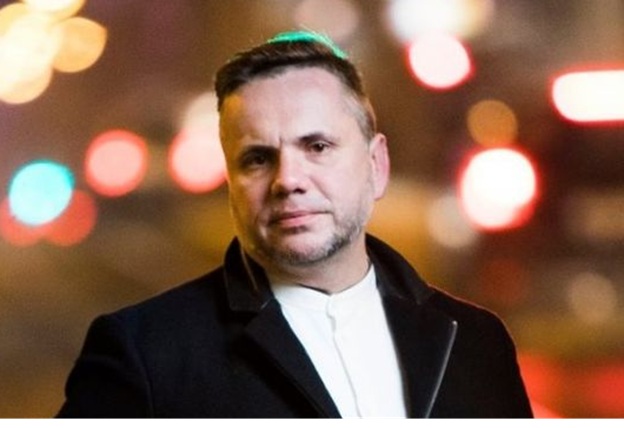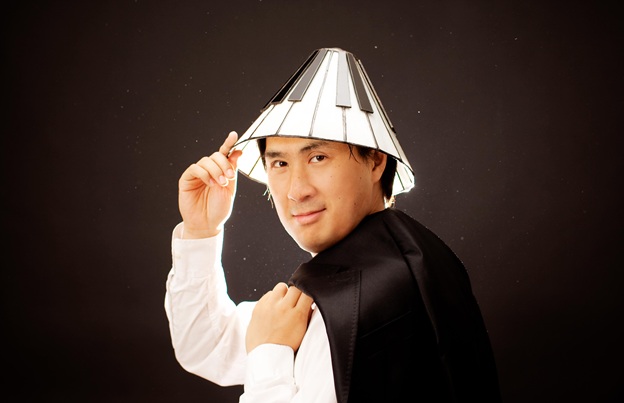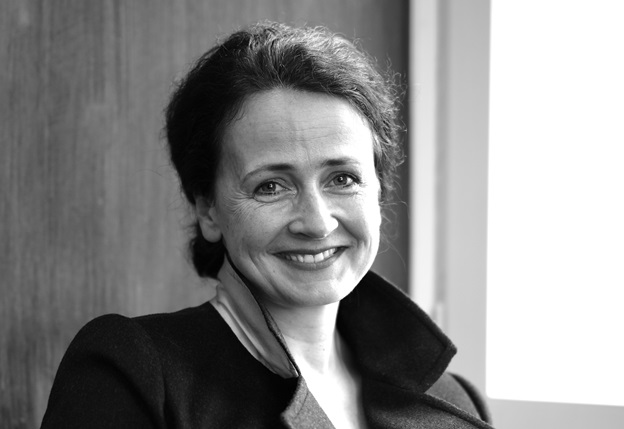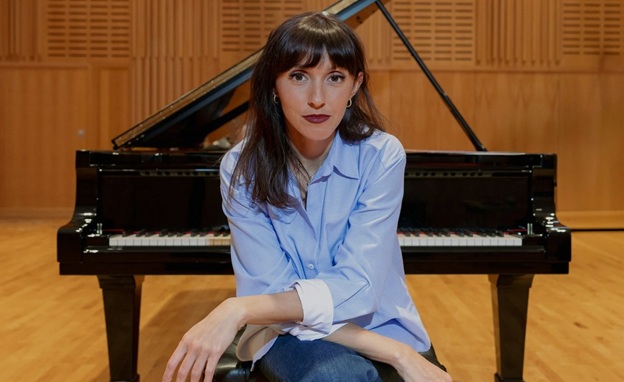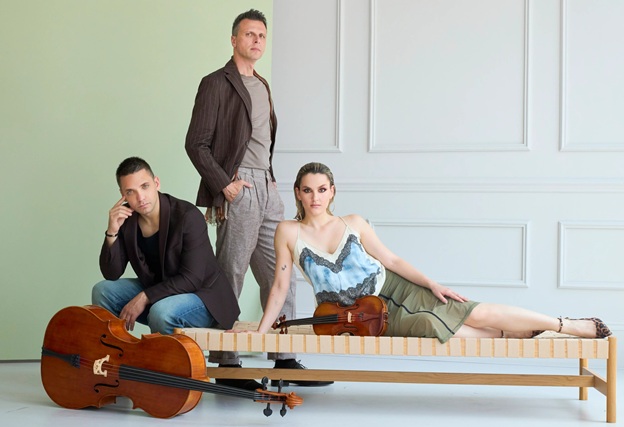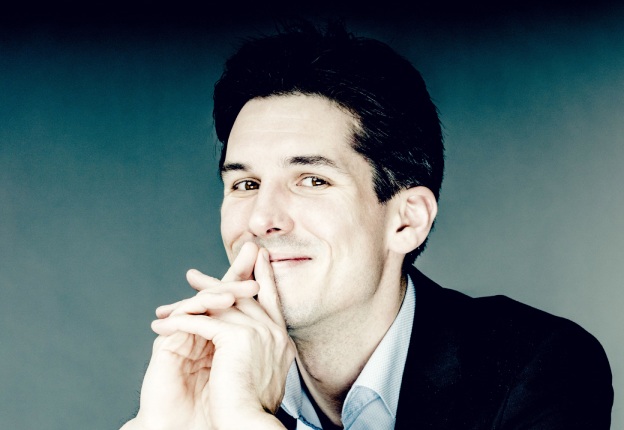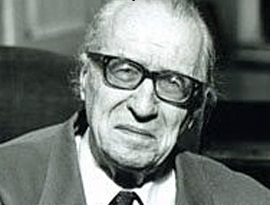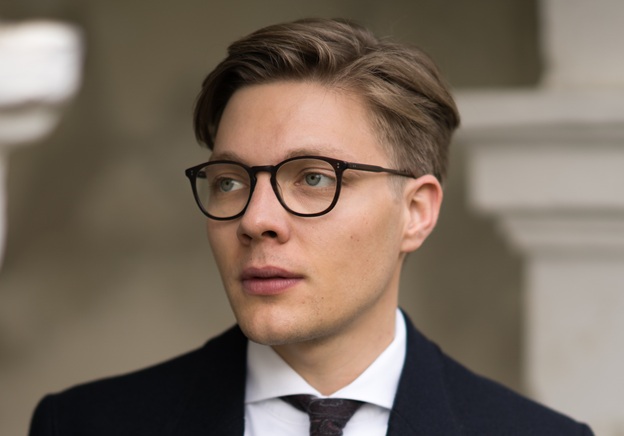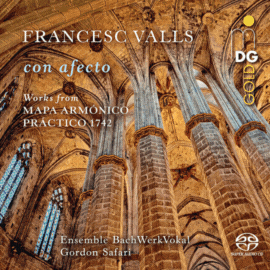You used to work in the record industry, and now you have set up your own label, Voilà Records. Why?
I had been thinking about creating my own label for a long time. I wanted a space where I could have complete freedom at every stage, from artistic choices to editorial and marketing decisions. I wanted to be able to decide on the casting, the repertoire and the visual identity. As a music lover, I am naturally passionate about all of these things, and I wanted to have control over them from start to finish. Read More →
Andris, you were born in Riga in 1978. In the mid-1990s, you studied composition with your country’s most famous composer, Pēteris Vasks, who is also known as ‘The voice of Latvia’. To what extent do you feel connected to your country’s musical tradition, and what does it mean to you to be a Latvian composer?
Of course, I am grateful to my country for educating me as a musician and as a person during my early years. Latvia is also very close to my heart as a geographically beautiful and diverse place. Yes, perhaps we don’t have snow-capped mountains, impressive waterfalls or blue sea lagoons, but I am very fond of the smell of Latvian pine and spruce forests, the harsh diversity and vastness of the Baltic Sea coast. Read More →
Herr Joo, glauben Sie an Zufälle?
Wow… eigentlich nicht.
Warum nicht?
Ich glaube, ich weiß, was die meisten Menschen unter ‘Zufall’ verstehen. Und meiner Meinung nach hängt es für viele Menschen auch von ihrem Glauben ab. Ich bin mir ziemlich sicher, dass wir alle schon einmal an einen Freund gedacht haben, den wir seit fünf Jahren nicht mehr gesehen haben, und eine Sekunde später ruft diese Person an. Und dann sagt man normalerweise: « Oh mein Gott, was für ein Zufall. » Aber wenn man die Welt aus einer anderen Perspektive betrachtet, sieht man es nicht als Zufall. Man sieht es als ‘die Art und Weise, wie die Dinge sind’. [lacht] Read More →
Your album ‘Nostalgia’has just been released, on which you and your husband, Basel Minster organist Andreas Liebig, have recorded Antonin Dvorak’s Biblical Songs and Johannes Brahms’ Choral Preludes, Op. posthumous 122, both late cycles by the composers. How did you come up with the title ‘Nostalgia’?
Both Johannes Brahms and his friend and protégé Antonin Dvorak, whom he greatly admired and supported, deal with grief and loss in these ‘prayers’. Imagine: Dvorak is currently director of the conservatory in New York, he misses his homeland and his father, who is lying, dying far away from him. Read More →
Many pianists playing Kapustin come from the classical music. You are trained as a multi-style pianist. Is your connection with jazz a plus for playing Kapustin?
Without a doubt. I grew up listening to jazz from a very young age and having an awareness of the style is so important. Thanks to my mum who is also a musician, I literally watched jazz musicians perform in my living room most weekends! The jazz idioms that Kapustin uses across his composition all need to be truly felt. I wouldn’t have such a strong connection to his compositions if it wasn’t for the exposure I’ve had to jazz. Read More →
Your trio exists since 2022. Where are the origins?
We are all colleagues at the Faculty of Music in Belgrade and have known each other for many years. The idea to form a piano trio came quite naturally – out of mutual respect, artistic curiosity, and a shared desire to create something lasting and meaningful together. Read More →
Das Ensemble BachWerkVokal besteht nun seit 10 Jahren. Wie kam es zur Gründung?
Ich kam nach Salzburg und habe die Stadt mit ihren vielschichtigen kulturellen Vibes sehr schnell und intensiv wahrgenommen. Mir kam die Idee, ein Ensemble mit Bach als künstlerischem Bezugspunkt zu gründen. In Salzburg lernt man sehr schnell sehr viele gute Musikerinnen und Musiker kennen – die Stadt ist nicht groß, aber gleichzeitig sehr international. Kurzum: Das Ensemble BachWerkVokal war geboren. Nachgedacht habe ich damals überhaupt nicht, was ich da anstoße – und das war gut so. Es wurde gleich eine ganze Saison geplant, realisiert, und es war ein Senkrechtstart. Read More →
Where do you see your father in today’s musical world?
I have noticed, with some saddened astonishment, that my father’s name is hardly ever mentioned in the French music press as one of the most important French composers of the 20th century.
Yet he was the most widely performed living French composer in the world and, judging by the feedback I get from his publishers and Sacem, the importance of programming his works worldwide has not diminished since. Read More →
Frau Szalwinska, Sie sind eine klassisch ausgebildete Pianistin, haben aber vor über 20 Jahren die Musik Astor Piazzollas, also des Tangos entdeckt. Eine Musik, die Sie bis heute nicht losgelassen hat. Was war denn der Auslöser?
Schuld daran war die Fernsehübertragung der königlichen Hochzeit von Maxima und Willem-Alexander in Amsterdam im Februar 2002. Als beide die Ringe tauschten, wurde Piazzollas Tango Adios Nonino gespielt. Diese Musik hat mich so fasziniert, dass ich sofort begonnen habe, Recherchen anzustellen, mir Partituren anzuschaffen und mich in die wunderbare Musik Piazzollas regelrecht hineinzuknien. Es wurde zu einer Liebe, die mich bis heute nicht losgelassen hat. Read More →
Herr Mühlbacher, mit 30 Jahren können Sie bereits auf eine lange Karriere zurückblicken, die als Sängerknabe begonnen hat und Sie momentan zu einem der gefragtesten Countertenören unserer Zeit macht. Wurde Ihre Wahl zum Fach des Countertenors von Ihrer Stimme begründet oder wie kam es dazu?
Ich habe schon als Kind ständig gesungen. Da meine Eltern bemerkten, dass ich eine sehr laute, aber auch hohe und schöne Stimme hatte, durfte ich bei den St. Florianer Sängerknaben vorsingen und wurde dort aufgenommen. Das Singen im Chor und bald auch als Sopransolist hat mir ungemein Spaß gemacht. Als ich in den Stimmbruch kam, hatte ich große Angst, meine helle Stimme zu verlieren. So habe ich dann sehr viel geübt und daran gearbeitet, meine Knabensopranstimme zu erhalten. Der Weg in Richtung Countertenor war damit ganz natürlich vorgezeichnet. Read More →




